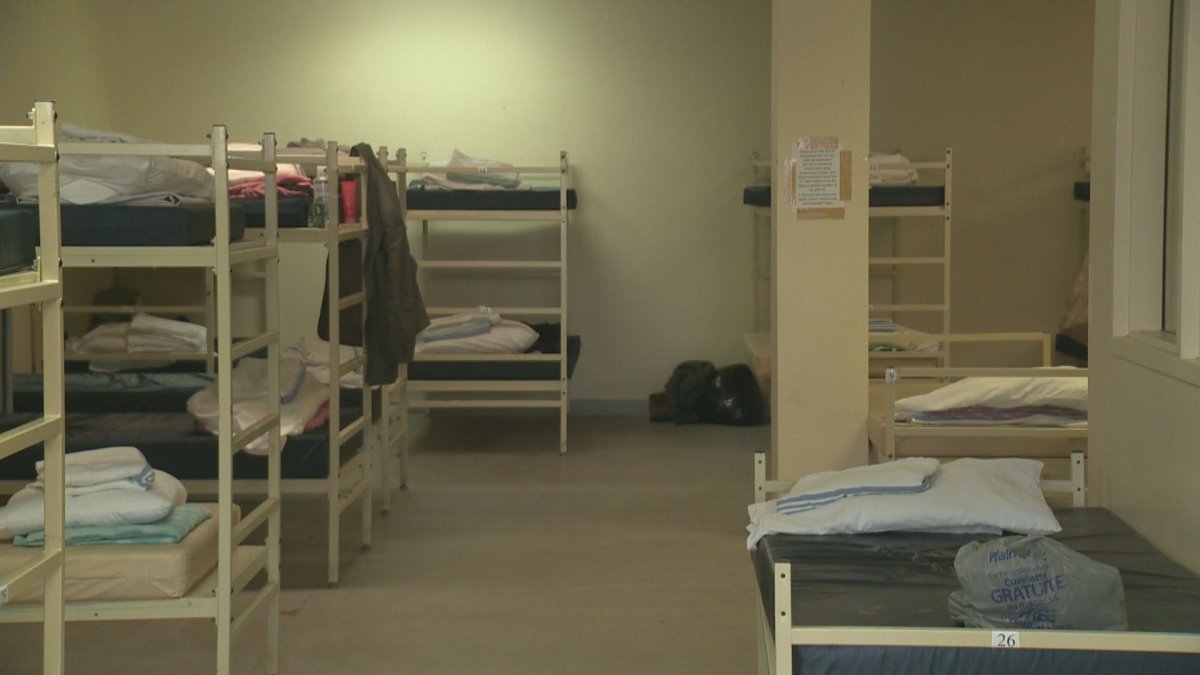Some of Regina’s most vulnerable residents could find themselves out in the cold as two of the city’s go-to shelters shutter amid the COVID-19 pandemic.

Carmichael Outreach posted a notice on its website Monday stating it has closed its 12th Avenue centre until further notice. The Salvation Army Waterston House is suspending its emergency shelter as of Thursday, Maj. Wayne McDonough told Global News.
“It’s a big challenge for this entire community,” McDonough said of COVID-19, the disease caused by the new novel coronavirus.
As of Tuesday, there were two confirmed and six presumptive cases of COVID-19 in Saskatchewan.
Where officials are recommending social distancing, self-isolation and in serious instances, quarantine, those in need of a warm place for a short-term stay short term tend to find themselves in close quarters.
“There’s a lot of beds that are very close together. So what we’ve had to do against our best wishes is target the shelter to close,” McDonough said.
Waterston House has 40 apartments and 39 private rooms for long-term stays. Any spaces that were available in those units are being filled by regulars of the emergency shelter, McDonough noted.
“We’re monitoring the folk and if they show any signs of illness or that, we’re able to isolate them,” he said, adding the agency is increasing cleaning and encouraging handwashing.

Get weekly health news
McDonough said those without lodging will be referred to social services for alternative arrangements.
It’s a move that will place even more strain on already-taxed agencies, he said.
Carmichael Outreach’s COVID-19 strategy aims to stop the spread of the disease “while maintaining our ability to offer services as best as possible,” states the notice on the agency’s website.
“We know that the services we offer are absolutely vital.”
Aspects of the agency’s programming will continue with modifications.
While there will be no new housing intakes, existing clients remain. The coffee room is closed, but staff will continue to make coffee and now will be handing it out at the front door starting at 9:15 a.m. Meals will still be served from 1-3 p.m. — also at the front door.
Carmichael Outreach has posted a schedule alongside the notice outlining when supplies will be handed out and certain types of donations will be accepted.

The Regina Food Bank intends to maintain service for now while exploring avenues to meet what executive director John Bailey anticipates will be growing demand.
“As economic pressures mount, we’re going to see a spike,” Bailey said.
The food bank is rethinking how it distributes hampers, he said, with social distancing in mind.
“We’re keeping safety of everyone front of mind,” Bailey said.
“We are handling the COVID-19 situation with an abundance of caution and understanding that it’s a very fluid situation.”
Questions about COVID-19? Here are some things you need to know:
Health officials say the risk is low for Canadians but warn this could change quickly. They caution against all international travel. Returning travellers are asked to self-isolate for 14 days in case they develop symptoms and to prevent spreading the virus to others.
Symptoms can include fever, cough and difficulty breathing — very similar to a cold or flu. Some people can develop a more severe illness. People most at risk of this include older adults and people with severe chronic medical conditions like heart, lung or kidney disease. If you develop symptoms, contact public health authorities.
To prevent the virus from spreading, experts recommend frequent handwashing and coughing into your sleeve. And if you get sick, stay at home.
For full COVID-19 coverage from Global News, click here.









Comments